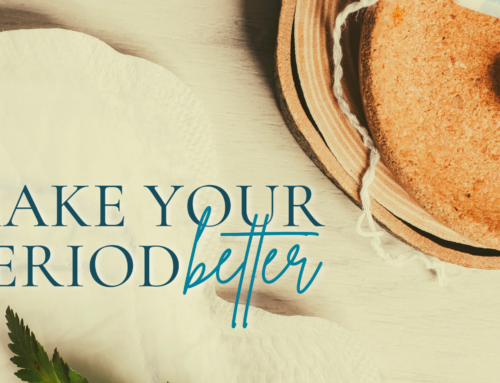 It is of supreme importance to talk about the Feminine Abilities and to try to give them the honor and respect that is their due, because they are so often disdained in our culture. I wonder sometimes, however, that if we focus so much on those things, if we might run the risk of making femininity equal to physical motherhood. But of course, the Feminine Abilities are so often treated with contempt, how can we not speak of them often?
It is of supreme importance to talk about the Feminine Abilities and to try to give them the honor and respect that is their due, because they are so often disdained in our culture. I wonder sometimes, however, that if we focus so much on those things, if we might run the risk of making femininity equal to physical motherhood. But of course, the Feminine Abilities are so often treated with contempt, how can we not speak of them often?
Right now, though, I am not pregnant. I’m not breastfeeding either. As I write this, I am not ovulating. But of course, I am still a woman. So I think to myself, what is the essence of womanhood?
As I contemplate a woman’s relational cycle, I think I might be getting closer to knowing the answer.
Firstly, what is a woman’s relational cycle? It is the emotional/relational experiences that women have that correlates with their monthly physical cycles. These descriptions have been adapted and paraphrased from the booklet Celebrating the Passage to Womanhood by Jeannie Hannemann.
Reflection Time: When a woman menstruates, physically she does not have as much energy, and relationally she feels pulled inward. A woman will have a greater interest in reflection. This is a good time for a woman to take stock of her life and reevaluate how it is going. She may wish to discard unhealthy ways of thinking or acting.
Planning Time: After menstruation, most women enter their Early Dry Days. Her energy returns and she feels more sociable. This is a good time to begin presenting proposals and beginning to put into place any plans she made during her reflection time.
Creative Time: A woman’s creative time correlates to the time of her cycle when she is fertile. A woman experiences her peak energy and her peak creativity during this time. Relationally, she feels nurturing and selfless. She wants to give to others and has the energy and creativity to do most anything.
Sensitive Time: After her creative time, a woman enters her Late Infertile Phase. For most of this phase, a woman’s energy remains stable, though it is not as great as during her Creative Time. A few days before her menstruation is to begin again, her energy begins to dip and she again feels the pull to go inward. Relationally, she feels more vulnerable, and things that may not bother her or things she may think are funny at other times, she may experience as wounding now. Others should be aware of her greater sensitivity and refrain from making playful jokes or jabs at her expense. This is also a time when she will be more open and blunt in her speech. As Jeannie Hannemann puts it, “You can learn secrets to her soul that are hidden at other times.”
To me, to be a woman is another (equally valuable) way of being human. We are cyclical. We don’t just go about our days and our lives each day feeling typically the same way and doing the same things. We have this whole inner world that colors each day with a different palette. We have a cycle of needing rest and reflection, then a time of energy and creativity, then a return again to rest and reevaluation.
It is this cyclical way of being that is perhaps the essence of womanhood. Our culture likes to paint caricatures of femininity, but real womanhood has nothing to do with whether we like the color pink or blue or any other color on the spectrum. It has nothing to do with whether we like to wear make-up and get our hair and nails done or whether we consider ourselves a tom-boy. It has nothing to do with whether our body shape is delicate and petite or whether we are larger than most men. To be a woman is a way of existing in the world that is different than the way men exist in it.
Therefore to me, the essence of true Feminism is to assert women’s right to exist as women. Furthermore, it is to assert that the way women are is every bit as valuable as the way men are. True feminism works for the right to participate in the culture, in the home, in business, in politics, and any other sphere not on the pretense that we de-feminize ourselves and become like men, but that we can participate as women because our way of existing in the world is every bit as valuable and necessary as the way men exist. When women have to change the way our bodies function (and our accompanying relational cycle with it) through abortion and birth control this is proof that women have accepted the misogynist ideal that we truly are inferior and that the masculine way of being really is the superior way.
Though our culture has convinced millions of women that their femininity itself is a burden that modern science has freed them from and that we cannot be equal unless we have access to it, I feel that such “solutions” to gender inequality keeps us more in chains than perhaps ever before. It is a whole culture that has accepted femaleness as less than maleness and believes that we are deserving of pity and need alteration in order to be all that we can, that is to be more like men. When a woman can be a woman and still use all her gifts, both intellectual and reproductive, in service to her family and to the wider culture, and receive equal honor and respect for what she does and who she is, then I will celebrate our cultural progress.
photo credit: Robb North via photopin cc




Leave A Comment